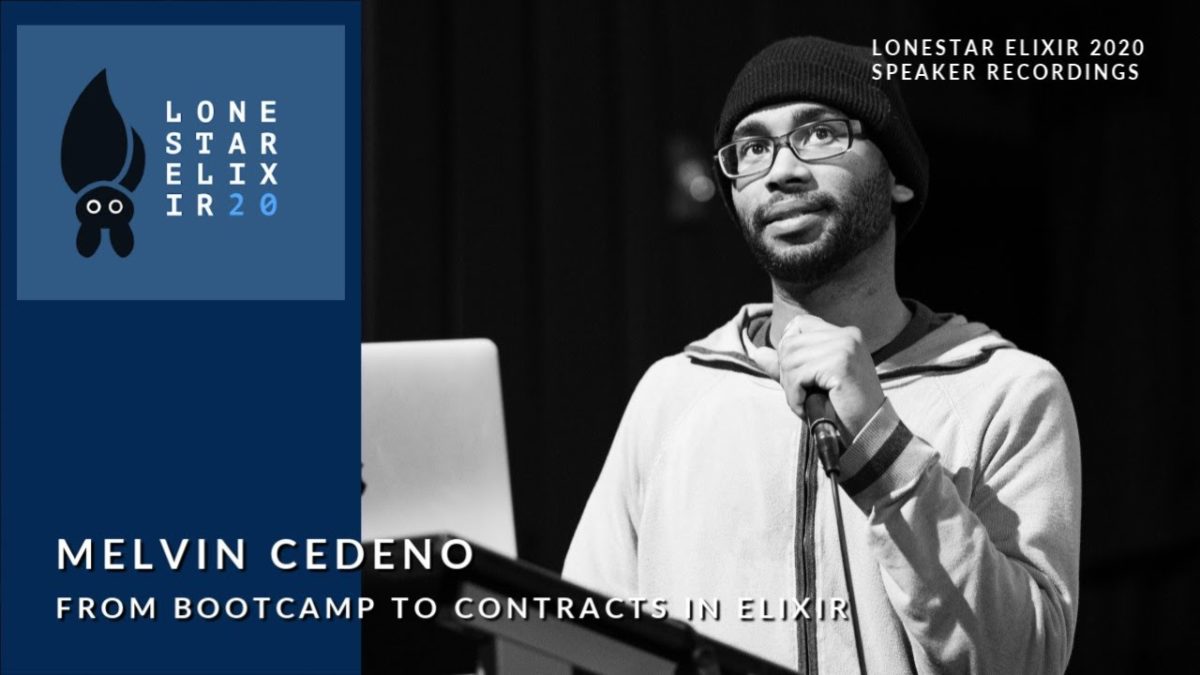
This is How I Got Here, a series where we chart the career journeys of technologists. Want to tell your story? Get in touch.
Melvin Cedeno has never graduated high school. But what he has done is start multiple businesses and try out four different industries before eventually landing as a software developer at SmartLogic.
Back in 2005, Cedeno charged his high school friends to design their MySpace pages, which led to starting a social media marketing company, Social Media Nexus, at 20 years old. With one client, he generated $58,000 without paying for ads. His time with his company immersed him in the world of Shopify, where he began designing ecommerce websites for clients.
“Mainly what got me into tech was this whole idea that I wanted to work remote,” said Cedeno. Social Media Nexus was a way to make money as he followed his then-girlfriend to Florida while she went to school. “That just led me to teaching myself how to use Excel, market on social media, set up all these websites, and that planted the seed.”
From there he took a sharp turn into planting seeds through agriculture, in the cannabis industry. He stayed there for 10 years before pursuing software development: The clearest way he saw to advance his career was through tech, so he decided to switch industries entirely.
After researching bootcamps for a year, he joined the Turing School of Software and Design in 2018 with a focus on back-end engineering. Since graduating, he spent about a year as a freelancer developer, until being hired at the Baltimore-based (but now fully remote) SmartLogic. Cedeno is now 31 and has been with SmartLogic for 10 months.
Taking the path less traveled is what eventually helped Cedeno break into the industry and his current job. He taught himself Elixir, leaning on the coding community he’d found through Turing. After he switched from applying to Ruby jobs to Elixir jobs, Cedeno noticed his callbacks jumped from one in every 30 applications to three in every four.
“A lot of us get into the habit of, ‘I know this one language very well so I want to do that,’ versus being open to other languages you might not know as well but also have less competition,” said Cedeno. “I just looked at it as a numbers game. If all of us are going after Rails jobs and we’re dealing with 20 other bootcamps that’s graduating a couple hundred people every six weeks, that market is going to get saturated pretty quickly.”
A less-popular coding language can be looked at as fewer jobs or less competition for jobs, but whether the glass is half full or half empty is dependent on how much one delves into the niche. Cedeno started focusing on Elixir and quickly started taking speaking engagements and becoming known in the Elixir community, which led to the SmartLogic position.
One tip Cedeno recommends for everyone trying to make the jump to tech is to do your research on coding bootcamps. Look at whether a bootcamp is nonprofit or for-profit, how many people graduate the program on time, how many are now working in tech, how long it took graduates to find jobs and their average salary. Info like this can be found through organizations such as the Council on Integrity in Results Reporting.
“There are a lot of for-profit bootcamps out there that do not give a shit about their students,” said Cedeno. “You’re just a face in a chair. They’ll run you through the program, then three months later they claim you should be a full-stack developer. I don’t think that’s possible. Especially if you’re coming in with no background.”
Whatever the path into tech, prior experiences are valuable and can set you apart. Coming to one industry from another doesn’t need to be a fish-out-of-water experience; in some cases, it just proves you’re amphibious.
“When we get into the tech industry, we forget that we already have skills that transfer over,” said Cedeno. He’s been dealing with clients for over a decade now and has learned tricks of the trade to make business relationships work — “like, how do you deal with a client that’s loosey-goosey and doesn’t really have their act together? I’ve had to deal with that in other industries. Those are transferable skills that really are useful.”
Donte Kirby is a 2020-2022 corps member for Report for America, an initiative of The Groundtruth Project that pairs young journalists with local newsrooms. This position is supported by the Robert W. Deutsch Foundation.Join the conversation!
Find news, events, jobs and people who share your interests on Technical.ly's open community Slack

Baltimore daily roundup: Medtech made in Baltimore; Sen. Sanders visits Morgan State; Humane Ai review debate

Baltimore daily roundup: An HBCU innovation champion's journey; Sen. Sanders visits Morgan State; Humane Ai review debate

Baltimore daily roundup: The city's new esports lab; a conference in Wilmington; GBC reports $4B of economic activity


